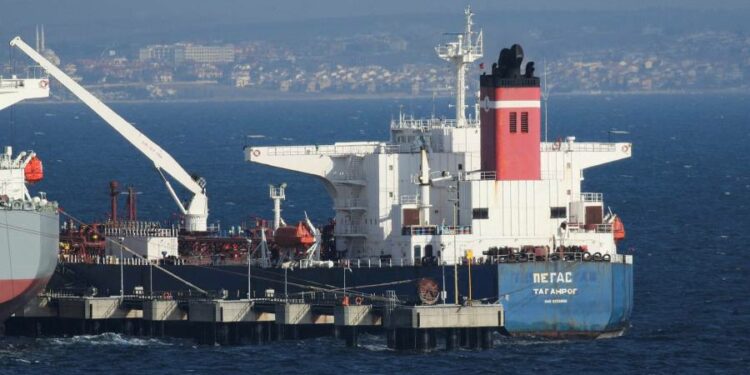European equities opened lower after Russia began a fresh ground offensive in Ukraine while the World Bank cut its global growth forecast, citing the inflationary effects of the war.
The Stoxx 600 share index fell 0.7 per cent in early dealings on Tuesday, while London’s FTSE 100 edged down 0.1 per cent and Germany’s Xetra Dax slipped 0.5 per cent. In Asia, Hong Kong’s Hang Seng share index fell 2.2 per cent as worries about global growth combined with a move by Chinese authorities to tighten regulations on the country’s lucrative livestreaming industry.
Ukrainian president Volodymyr Zelensky said on Monday, when major European markets were closed for the Easter holiday, that Russia had concentrated a “significant part” of its forces in the eastern Donbas border region. The World Bank lowered its global economic growth forecast from 4.1 per cent to 3.2 per cent and forecast a contraction in Europe, which is vulnerable to sanctions against Russia and supply chain disruptions causing energy and food prices to soar.
The price of gold, which touched its highest point in a month on Monday as economic growth concerns drove investors to buy up the haven asset, edged 0.2 per cent lower in early European trading to $1,974 a troy ounce.
Brent crude oil dropped 0.3 per cent to $112.8 a barrel, after rallying for the past four days.
Chinese tech stocks slid on Tuesday, as markets reopened after the news that Beijing had tightened regulations on the country’s livestreaming industry.
The Hang Seng Tech index, which tracks Hong Kong-listed technology groups, fell 3.5 per cent, with notable losses for video platforms Bilibili, which shed as much as 11 per cent, and Kuaishou, which dropped 5.5 per cent.
Investors on Tuesday were looking ahead to a week of corporate earnings for clues about how the business world was grappling with inflation and the uncertain growth outlook. Streaming group Netflix will report quarterly numbers later on Tuesday, with analysts watching to see whether a trend for UK households to cancel subscriptions to deal with rising living costs is being replicated elsewhere.
For more markets news, click here.











